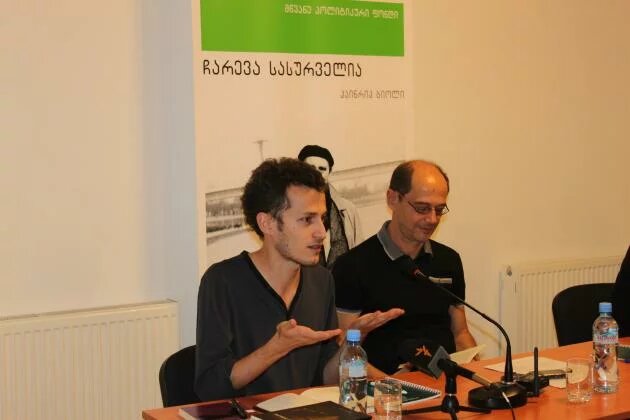
The literary competition “Saba”, one of the most important events in the Georgian cultural environment, was founded in 2003 and so far has been held 10 times. For the past decade, only 17 out of 85 awards have been issued to women. This was discussed during the event entitled, “The feminine tradition in Georgian literature: new faces and legacies.” One of the speakers, David Gabunia, used statistics of “Saba” to analyze modern literary processes. He stated that so far, only one woman has received the award for the best prose collection as well as best poetic collection, while the award for the best novel has been granted to two women. The award for commitment to literature has only been granted to one woman, Ana Kalandadze. However, nine women have received awards for best debuts, as opposed to three men. It is also interesting to observe the jury composition: in the past decade, 53 members were male and only eight were female.
But exact representation of men and women comprised only one aspect of the discussion. Dato Gabunia also spoke of positive discrimination and its importance for a country with a society such as Georgia’s. As he explained, “this is a measure for those who have no equal representation for various reasons. When equal representation opportunities are given to women and men, special measures are not needed after a while. The fact that only eight women are jury members against 53 men indicates the need for such measures.
“Linearity, continuity, rationality, release of emotions” in terms of language – all are opposites of ‘Woman’s Language’, which lacks any continuity and has broken sentences and broken syntax,” says Salome Tsopurashvili. According to her, when it comes to gender equality, we often hear the argument that the Georgian language has no gender, meaning that our subconscious, which is expressed in language, minimizes gender differences. But if so, why do Georgians say “female writer,” when men are just described as “writers”? Does this show that the word “writer” has a gender in our subconscious, and this gender is male?
Writer Nino Kharatishvili, another speaker in the discussion, talked about Western problems regarding the given topic and said that in Germany, where she lives now, the situation is different. “Almost everyone who writes is given a chance to show themselves, but it does not mean everyone can write well…It can be said that female writers have gained more awards than male. Each year, numerous novels of female writers are published, they are translated, etc.” According to Kharatishvili, however this does not signify equality. She says that it is incorrect to grant any advantages based on feminist or non-feminist views, unless this person’s work itself is interesting. “I want to be perceived as a writer and not as a female writer,” Kharatishvili concludes.